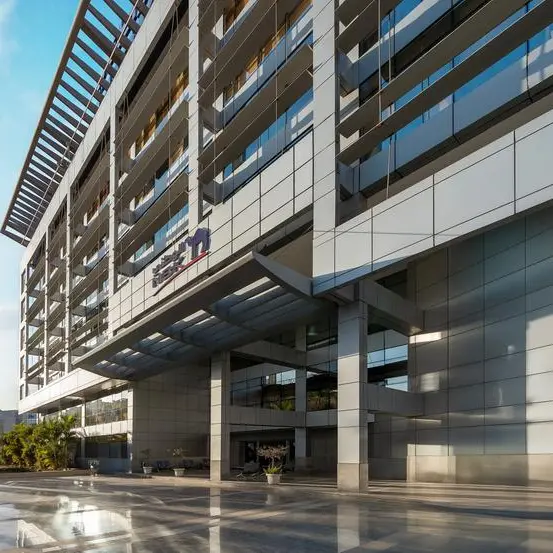Riyadh: The General Authority of Civil Aviation (GACA) in Saudi Arabia has today signed an agreement with CJ Logistics to build a dedicated e-Commerce Global Distribution Center at Riyadh Integrated the Kingdom’s first Special Integrated Logistics Zone by 2024.
CJ Logistics, a leading provider of logistics solutions worldwide, will build a Global Distribution Center at Riyadh’s Special Integrated Logistics Zone by 2024. The proposed facility is a state-of-the-art logistics center with a gross floor area of 18,000 square meters and a daily throughput capacity of 15,000 boxes. It will serve as a forwarding base and hub for logistics in the region, connecting the Middle East, Africa and Europe.
CJ Logistics recently signed an eight-year long-term contract with iHub before establishing the Global Distribution Center. The new Center will offer international delivery of iHerb products to the Middle East, one of the largest online retailers for health and wellness products.
Commenting on the issuance of the license, GACA President Al Duailej said:
“On behalf of the General Authority of Civil Aviation, I am delighted to be issuing CJ Logistics with a license to operate today, which marks an important milestone for Riyadh Integrated - Saudi Arabia’s Special Integrated Logistics Zone. We look forward to CJ Logistics having a strong presence in the Kingdom, with this Global Distribution Center being their main hub in the region.
“Riyadh Integrated is a testimony to the Saudi Aviation Strategy under Vision 2030, positioning the Kingdom as a global logistics hub connecting three continents to the Kingdom as our logistics sector is transformed.
“As a vital enabler for Saudi Arabia’s logistics sector, the Special Integrated Logistics Zone will strengthen Saudi Arabia’s position as the largest, fastest growing market and leading strategic trading nation in the Middle East and continue Vision 2030’s mission to connect the Kingdom to the world.”
Kang Sin-ho, CEO of CJ Logistics, added:
“The Saudi e-commerce market has the richest growth potential in the Middle East and the geographical advantage of connecting Africa, Middle East and Europe.
"We will spare no support for state-of-the-art logistics technology and infrastructure so that the GDC can become a logistics hub that leads the Middle East e-commerce market."
The Special Integrated Logistics Zone was launched in October 2022 in Riyadh by HE the Minister of Transport & Logistics and the General Authority for Civil Aviation. The Zone is truly integrated, with a value proposition that has been developed alongside its first batch of investors.
The strategically located Special Integrated Logistics Zone will serve billions of potential customers in easy reach in Africa, Asia and Europe and help to significantly increase Saudi’s cargo capacity to more than 4.5 million tons per annum. It will also strengthen Saudi Arabia’s competitive position as the largest, fastest growing and leading trading nation in the Middle East, continuing Vision 2030’s mission to connect the Kingdom to the world.
As part of the wider transformation of the Kingdom’s logistics sector, by 2030 Saudi Arabia is significantly increasing its cargo capacity to more than 4.5 million tons per annum and increasing the contribution of the transport and logistics sector to national gross domestic product from the current six per cent to 10 per cent. This will help to fuel business growth, attract inward investment, and increase the sector’s non-oil revenues to about SR 45 billion ($12 billion) a year by 2030.
About Riyadh Integrated - the Special Integrated Logistics Zone
Riyadh Integrated – the Kingdom’s first Special Integrated Logistics Zone - has been developed by the General Authority of Civil Aviation (GACA). The Zone was given its legislative basis by Royal Order in October 2018 and integrates regulatory, technological and infrastructure best practice to create the best possible operating environment for multinational businesses.
The Zone is located within the parameters of King Khalid International Airport in Riyadh – connecting businesses with the largest consumer market in the Middle East and offering air connectivity to the rest of the world.
It was designed from the ground up with industry leaders, including Apple Inc, for the world’s leading supply chain and logistics companies. It is the only Special Integrated Logistics Zone in the GCC that offers both Vendor Managed Inventory (VMI) and gives VAT advantages to goods which are temporarily transferred between the mainland and the zone for purposes of repair, maintenance, after-sales services and manufacturing and assembly services.
The Special Integrated Logistics Zone has a unique value proposition that goes beyond tax, allowing tenants to drastically reduce time and cost taken to deliver goods to Saudi consumers. The Zone features best-in-class inbound and outbound inventory systems which provides direct linkages between investors, suppliers, customs and government.
About the Saudi Aviation Strategy and GACA
The Saudi Aviation Strategy is transforming the entire Saudi aviation ecosystem to become the number one aviation sector in the Middle East by 2030, enabled by Vision 2030 and in line with the Kingdom’s National Transport and Logistics Strategy.
The Strategy is unlocking US$100 billion in private and government investment across the Kingdom’s airports, airlines and aviation support services. The Strategy will extend Saudi Arabia’s connectivity from 99 to more than 250 destinations across 29 airports, triple annual passenger traffic to 330 million, establish two global long-haul connecting hubs, and increase air cargo capacity to 4.5 million tons.
The Saudi Aviation Strategy is led by the Kingdom’s aviation regulator, the General Authority for Civil Aviation (GACA). GACA’s regulatory mission is to develop the air transport industry in accordance with the latest international standards, strengthen the position of the Kingdom as a globally influential player in civil aviation, and enforce the relevant rules, regulations and procedures to ensure air transport safety and security.



















